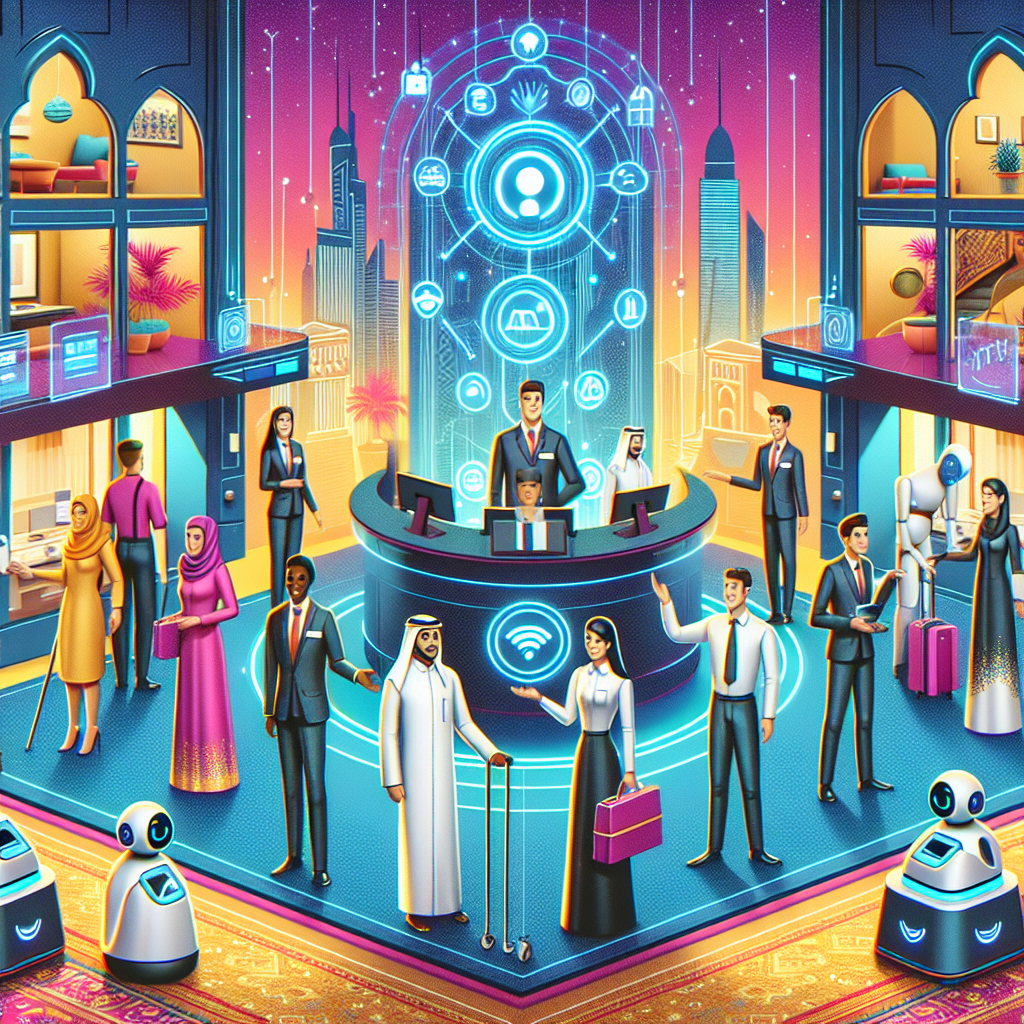AI-Driven Personalization in the Hospitality Industry
In recent years, the hospitality industry has seen a significant shift towards AI-driven personalization. With the rise of technology and data analytics, hotels, resorts, and other businesses in the hospitality sector are leveraging artificial intelligence to create personalized experiences for their guests. This trend is revolutionizing the way businesses interact with customers, allowing for a more customized and tailored approach to service delivery.
AI-driven personalization in the hospitality industry involves the use of artificial intelligence algorithms and machine learning techniques to analyze customer data and provide personalized recommendations and experiences. This can range from personalized room recommendations based on past preferences to targeted marketing campaigns tailored to individual guest preferences.
One of the key benefits of AI-driven personalization in the hospitality industry is the ability to enhance the overall guest experience. By analyzing customer data, businesses can better understand their guests’ preferences and tailor their services accordingly. This can lead to increased customer satisfaction, loyalty, and repeat business. In addition, personalized experiences can help businesses stand out in a crowded market and differentiate themselves from competitors.
Another benefit of AI-driven personalization is the ability to increase operational efficiency. By automating tasks such as room assignments, guest recommendations, and marketing campaigns, businesses can streamline their operations and reduce costs. This can lead to improved profitability and a more efficient use of resources.
AI-driven personalization can also lead to increased revenue generation. By offering personalized recommendations and experiences, businesses can upsell additional services and amenities to guests. This can lead to increased revenue per guest and a higher return on investment for the business.
There are several ways in which AI-driven personalization is being implemented in the hospitality industry. One common application is the use of chatbots and virtual assistants to provide personalized recommendations and assistance to guests. These AI-powered tools can help guests with everything from booking reservations to recommending local attractions and restaurants.
Another application of AI-driven personalization is the use of dynamic pricing algorithms to offer personalized room rates to guests. By analyzing factors such as demand, seasonality, and guest preferences, businesses can optimize pricing to maximize revenue while also providing value to guests.
AI-driven personalization is also being used to enhance the guest experience through personalized amenities and services. For example, hotels can use AI algorithms to recommend spa treatments, dining options, and other services based on a guest’s past preferences and behavior. This can lead to a more enjoyable and memorable stay for guests.
Despite the many benefits of AI-driven personalization, there are also some challenges and considerations that businesses in the hospitality industry need to be aware of. One of the main challenges is data privacy and security. With the increasing amount of customer data being collected and analyzed, businesses need to ensure that they are complying with data protection regulations and safeguarding customer information.
Another challenge is the need for ongoing investment in technology and training. Implementing AI-driven personalization requires businesses to invest in the right technology infrastructure and resources to support these initiatives. In addition, staff need to be trained on how to use AI tools effectively and integrate them into their daily operations.
FAQs:
Q: How can AI-driven personalization benefit my hospitality business?
A: AI-driven personalization can benefit your hospitality business in several ways, including enhancing the guest experience, increasing operational efficiency, and generating additional revenue. By analyzing customer data and providing personalized recommendations and experiences, you can improve customer satisfaction, loyalty, and repeat business.
Q: What are some common applications of AI-driven personalization in the hospitality industry?
A: Common applications of AI-driven personalization in the hospitality industry include the use of chatbots and virtual assistants to provide personalized recommendations and assistance to guests, dynamic pricing algorithms to offer personalized room rates, and personalized amenities and services based on a guest’s preferences.
Q: What are some challenges of implementing AI-driven personalization in the hospitality industry?
A: Some challenges of implementing AI-driven personalization in the hospitality industry include data privacy and security concerns, the need for ongoing investment in technology and training, and the potential for resistance from staff and customers. It is important to address these challenges proactively to ensure the successful implementation of AI-driven personalization initiatives.
In conclusion, AI-driven personalization is transforming the hospitality industry by enabling businesses to provide personalized experiences and recommendations to their guests. By leveraging artificial intelligence and machine learning technologies, businesses can enhance the guest experience, increase operational efficiency, and generate additional revenue. While there are challenges and considerations to be aware of, the benefits of AI-driven personalization make it a valuable investment for businesses in the hospitality sector.

